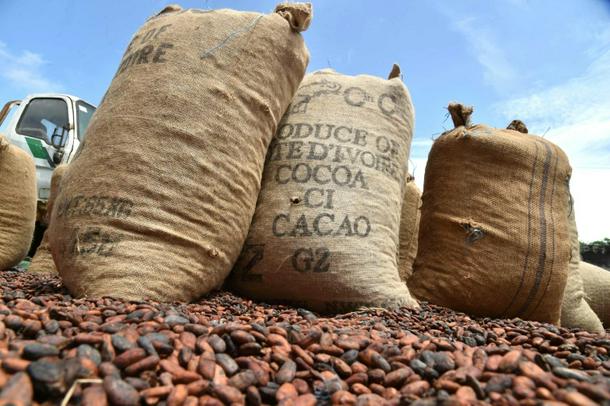
Ivory Coast and Ghana have been pressing chocolate giants to pay higher prices for cocoa beans to help poor farmers
Abidjan (AFP) - Ivory Coast and Ghana, the world’s two biggest cocoa producers, said Monday there had been progress towards resolving a tug-of-war with chocolate giants on prices.
The two countries had set a deadline of Sunday for manufacturers to pay higher prices to their growers.
But in a joint statement, industry bodies said the talks had yielded agreement to set up a working group to explore the problems, and report back early next year.
The producer countries also praised “the efforts made by certain companies” to find a solution for sustainable farming, the statement said.
The quarrel focuses on the Living Income Differential (LID) – a policy Ivory Coast and Ghana introduced in 2019 to fight poverty among cocoa farmers in the global $130-billion chocolate market.
Under it, Ivory Coast and Ghana vowed to charge a premium of $400 per tonne on all sales of cocoa beans, starting with the 2020⁄21 harvest.
But their trade boards say the scheme is being undercut by buyers who depress the price of another premium based on bean quality.
They have accused purchasers of clawing back the cost of the LID by exerting pressure on the “origin differential” premium, which has plunged below zero in recent years.
They set November 20 as a deadline for bringing buyers into line.
They threatened to punish corporations by barring them from visiting plantations to estimate harvests – a key factor in cocoa price forecasting.
And they also threatened to suspend sustainability programmes that chocolate giants use to enhance their image given the increasing ethical concerns of consumers.
- Progress -
Monday’s joint statement was signed by the Ivorian Coffee-Cocoa Council (CCC), the Ghana Cocoa Board (Cocobod) and the Ivory Coast-Ghana Cocoa Initiative (CIGCI).
The communique said producers had been in talks with chocolate manufacturers and other players in the industry.
The producers “noted the efforts made by certain companies and their desire to jointly find solutions for sustainable cocoa production that places farmers at the heart of this strategy”, the statement said.
“Under the auspices of the CIGCI, a working group of experts composed of representatives of member countries and cocoa sector stakeholders has been set up to study solutions to better resolve certain problems and to guarantee a sustainable price mechanism in the long term,” it added.
The panel is expected to report back in the first quarter 2023.
The two countries together account for 60 percent of the world’s cocoa but their farmers earn less than six percent of the industry’s global revenue.
- Value-added call -
Ivorian Prime Minister Patrick Achi told a press conference on Monday “the solution (to the row) is to process 100 percent of our cacao” in Ivory Coast.
His remarks touched on long-standing demands by producer countries, who say they lose out on jobs if they fail to get into the value-added parts of the chocolate business.
At present, only about a quarter of Ivorian production is processed into cocoa in the country itself.
Ivory Coast by itself accounts for 45 percent of world cocoa production.
The sector accounts for 14 percent of the national economy, but is also notorious for child labour, including cross-border trafficking of youngsters who toil in the plantations.